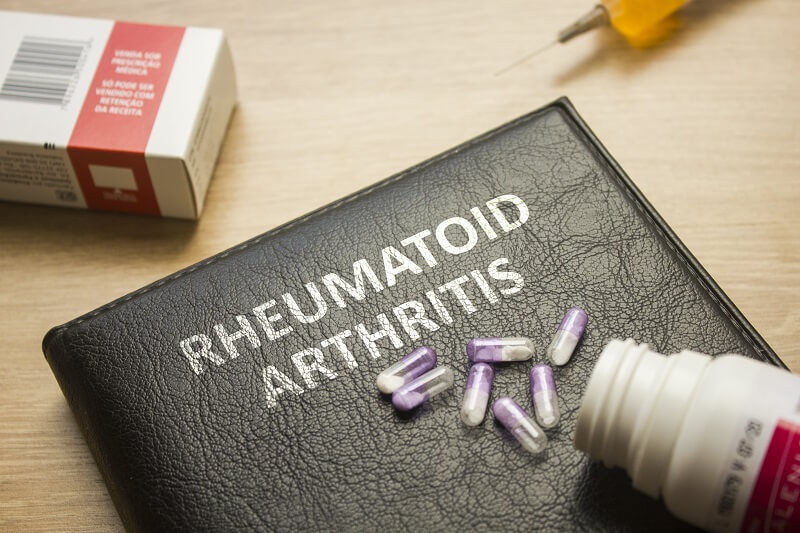MEDICATIONS FOR RHEUMATOID ARTHRITIS (RA)

There are several classes of medications for rheumatoid arthritis. In the past, there was no way to stop RA, and treatment was geared towards symptom relief. Fortunately, we now have medications that can reduce disease activity and even achieve remission where the disease becomes inactive, preventing long-term joint damage. Here is a general summary of your medication options—discuss specific medications with your rheumatologist:
Antiinflammatory medications can decrease joint pain, stiffness, and swelling to make symptoms more manageable. However, RA remains active, and antiinflammatory medications do not prevent RA from causing long-term joint damage. Antiinflammaties include NSAIDs and corticosteroids. Since corticosteroids can cause lots of side effects, especially if taken frequently, they are usually reserved for use when NSAIDs aren’t helping with symptom relief.
Disease modifying antirheumatic medications (DMARDs) are strong medications designed to control the immune system to minimize the inflammation that attacks the joints. These medications can deactivate RA disease and prevent irreversible damage in the body. There are 2 main classes of DMARDs. Nonbiologics like methotrexate are considered first line DMARDs. Biologics, which are proteins that are engineered from live organisms, focus on disrupting the immune system so that it stops attacking the body. This mechanism does increase the risk of infections, so close monitoring is needed when taking these medications. Typically, nonbiologics will be used first, but there are some specific criteria that your rheumatologist will use to decide what you need.
When pain is severe and more relief is needed, then your doctor may use prescription strength pain medications. Acetaminophen over the counter is very safe for most people, but when it’s not enough, narcotic strength medications may be considered. These medications are reliable pain relievers for the short term, but are highly addictive and may cause complex pain responses when used too often. Pain medications should be used as little as possible, only when all other measures fail, and should be limited to extremely short-term use as needed just for severe pain.
Before putting you on medications for RA, check blood sugar, blood cell counts, liver function. Your doctor should also screen your heart and lung function. Certain medications such as biologic DMARDs should not be used if you have hepatitis B or C, or tuberculosis, or other infections.
Other Topics That Interest You


